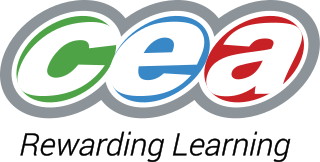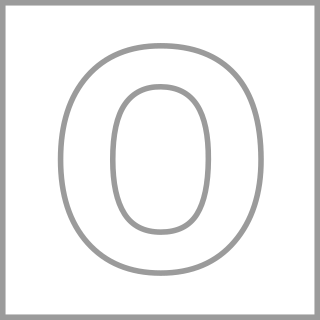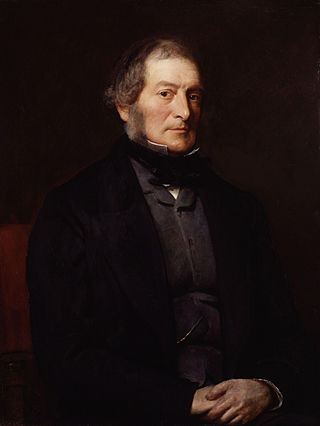The Entry Level Certificate (ELC) is a qualification offered in England, Wales and Northern Ireland. It lies at Entry Level of the National Qualifications Framework, pitching it just below GCSE level.
The Entry Level Certificate (ELC) is a qualification offered in England, Wales and Northern Ireland. It lies at Entry Level of the National Qualifications Framework, pitching it just below GCSE level.
ELCs are available in a variety of subjects, such as English, Maths, Science, French, Life Skills and Childcare. [1]
The qualifications are targeted at those who struggle to access the mainstream curriculum, such as students with special educational needs. Most students take the qualifications in school at ages 14–16, as an alternative to GCSEs, but many adults also take them.
Students are assessed through a combination of coursework, controlled assessment and examinations, depending on the qualification.
ELCs are offered by a number of examination boards, including AQA, CCEA, Edexcel, OCR and WJEC.
A student successfully completing an ELC is awarded one of the following grades, which are common to all Entry Level qualifications:
Those who do not reach the level for Entry 1 are recorded as uncertified (U) and do not have the subject appear on their results certificates.
Entry 1, Entry 2 and Entry 3 are broadly equivalent to National Curriculum Levels 1, 2 and 3 respectively. [2]
When converting qualifications to school attainment points, Entry 1 is worth 10 points, Entry 2 is worth 12 and Entry 3 is worth 14. This compares to 16 points for GCSE Grade G (the lowest GCSE pass) and 22 points for GCSE Grade F. [3]
The Entry Level Certificate was launched as the Certificate of Achievement [4] (Certificate of Educational Achievement if offered by WJEC [5] ) in September 1996, [6] with the first awards being made in 1998. The grades were originally known as Distinction (now Entry 3), Merit (Entry 2) and Pass (Entry 1). [7]
The name Entry Level Certificate was adopted from the 2001 award onwards.
The General Certificate of Secondary Education (GCSE) is an academic qualification in a range of subjects taken in England, Wales, and Northern Ireland, having been introduced in September 1986 and its first exams taken in 1988. Public schools in Scotland use the Scottish Qualifications Certificate instead. However, private schools in Scotland often choose to follow the English GCSE system.
The General Certificate of Education (GCE) is a subject-specific family of academic qualifications used in awarding bodies in England, Wales, Northern Ireland, Crown dependencies and a few Commonwealth countries. For some time, the Scottish education system has been different from those in the other countries of the United Kingdom.
Education in the United Kingdom is a devolved matter, with each of the countries of the United Kingdom having separate systems under separate governments. The UK Government is responsible for England, whilst the Scottish Government, the Welsh Government and the Northern Ireland Executive are responsible for Scotland, Wales and Northern Ireland, respectively.

AQA Education, trading as AQA, is an awarding body in England, Wales and Northern Ireland. It compiles specifications and holds examinations in various subjects at GCSE, AS and A Level and offers vocational qualifications. AQA is a registered charity and independent of the government. However, its qualifications and exam syllabi are regulated by the Government of the United Kingdom, which is the regulator for the public examinations system in England and Wales.
The Advanced Extension Awards are a type of school-leaving qualification in England, Wales and Northern Ireland, usually taken in the final year of schooling, and designed to allow students to "demonstrate their knowledge, understanding and skills to the full". Currently, it is only available for Mathematics and offered by the exam board Edexcel.

The Council for the Curriculum, Examinations & Assessment (CCEA) is an awarding body in Northern Ireland. It develops and delivers qualifications, including GCSEs, AS, and A Levels, and provides curriculum support and assessments for schools. CCEA is a non-departmental public body and regulator, approving and monitoring Awarding Organisations offering qualifications in Northern Ireland.

WJEC is an examination board providing examinations, professional development and educational resources to schools and colleges in Wales and Northern Ireland under its own name, and the Eduqas brand for England.

The International General Certificate of Secondary Education (IGCSE) is an English language based secondary qualification similar to the GCSE and is recognised in the United Kingdom as being equivalent to the GCSE for the purposes of recognising prior attainment. It was developed by Cambridge Assessment International Education. The examination boards Edexcel, Learning Resource Network (LRN), and Oxford AQA also offer their own versions of International GCSEs. Students normally begin studying the syllabus at the beginning of Year 10 and take the test at the end of Year 11. However, in some international schools, students can begin studying the syllabus at the beginning of Year 9 and take the test at the end of Year 10.
The Certificate of Secondary Education (CSE) was a subject-specific qualification family awarded in both academic and vocational fields in England, Wales and Northern Ireland. CSE examinations were held in the years 1965 to 1987. This qualification should not be confused with the Indian Certificate of Secondary Education which is a school-leaving qualification in India. Also, in some African and former British colonial countries there is a qualification named the Certificate of Secondary Education based on the original and former British variant. Also, the CSE should not be confused with the African qualification CSEE.
The Welsh Baccalaureate, or Welsh Bacc, is an educational qualification delivered in secondary schools and colleges across Wales. The Welsh Government says that it gives broader experiences than traditional learning programmes, developing transferable skills useful for education and employment. The Welsh Bacc is offered at Advanced, National Foundation and National/Foundation level, and is studied alongside a range of academic and vocational qualifications.

The A-level is a subject-based qualification conferred as part of the General Certificate of Education, as well as a school leaving qualification offered by the educational bodies in the United Kingdom and the educational authorities of British Crown dependencies to students completing secondary or pre-university education. They were introduced in England and Wales in 1951 to replace the Higher School Certificate. The A-level permits students to have potential access to a chosen university they applied to with UCAS points. They could be accepted into it should they meet the requirements of the university.

The O-Level is a subject-based qualification conferred as part of the General Certificate of Education. It began in the United Kingdom and has been adopted, often with modifications, in several other countries.
In the United Kingdom, an awarding body is an examination board which sets examinations and awards qualifications, such as GCSEs and A-levels. Additionally, these Awarding Bodies provide professional awards in the form of tertiary level Certificates, Diplomas, Advanced Diplomas, Graduate Diplomas, and Post Graduate Diplomas. There are seven main examination boards in the United Kingdom:
Examination boards in the United Kingdom are the examination boards responsible for setting and awarding secondary education level qualifications, such as GCSEs, Standard Grades, A Levels, Highers and vocational qualifications, to students in the United Kingdom.
The A-level is a main school leaving qualification of the General Certificate of Education in England, Wales, Northern Ireland, the Channel Islands and the Isle of Man. It is available as an alternative qualification in other countries, where it is similarly known as an A-Level.
The Joint Council for Qualifications (JCQ) is a community interest company acting as a single voice for the eight largest qualification providers in the United Kingdom offering GCSE, GCE, Scottish Highers and vocationally related qualifications: AQA, CCEA, City & Guilds, Edexcel, NCFE, OCR, SQA and WJEC. The JCQ closely monitors examination administration, invigilation of examinations (exams) at individual schools and other centres, and the activities of examinations officers.
Additional Mathematics is a qualification in mathematics, commonly taken by students in high-school. It features a range of problems set out in a different format and wider content to the standard Mathematics at the same level.
Extended Project Qualification (EPQ) is a qualification taken by some students in England and Wales, which is equivalent to 50% of an A-Level. Graded A*–E and worth up to 28 UCAS tariff points, it is part of level three of the national qualifications framework.
A high school diploma is a diploma awarded upon graduation of high school. A high school diploma is awarded after completion of courses of studies lasting four years, from grade 9 to grade 12. It is the school leaving qualification in the United States and Canada.

Science education in England is generally regulated at all levels for assessments that are England's, from 'primary' to 'tertiary' (university). Below university level, science education is the responsibility of three bodies: the Department for Education, Ofqual and the QAA, but at university level, science education is regulated by various professional bodies, and the Bologna Process via the QAA. The QAA also regulates science education for some qualifications that are not university degrees via various qualification boards, but not content for GCSEs, and GCE AS and A levels. Ofqual on the other hand regulates science education for GCSEs and AS/A levels, as well as all other qualifications, except those covered by the QAA, also via qualification boards.
{{cite web}}: CS1 maint: archived copy as title (link)